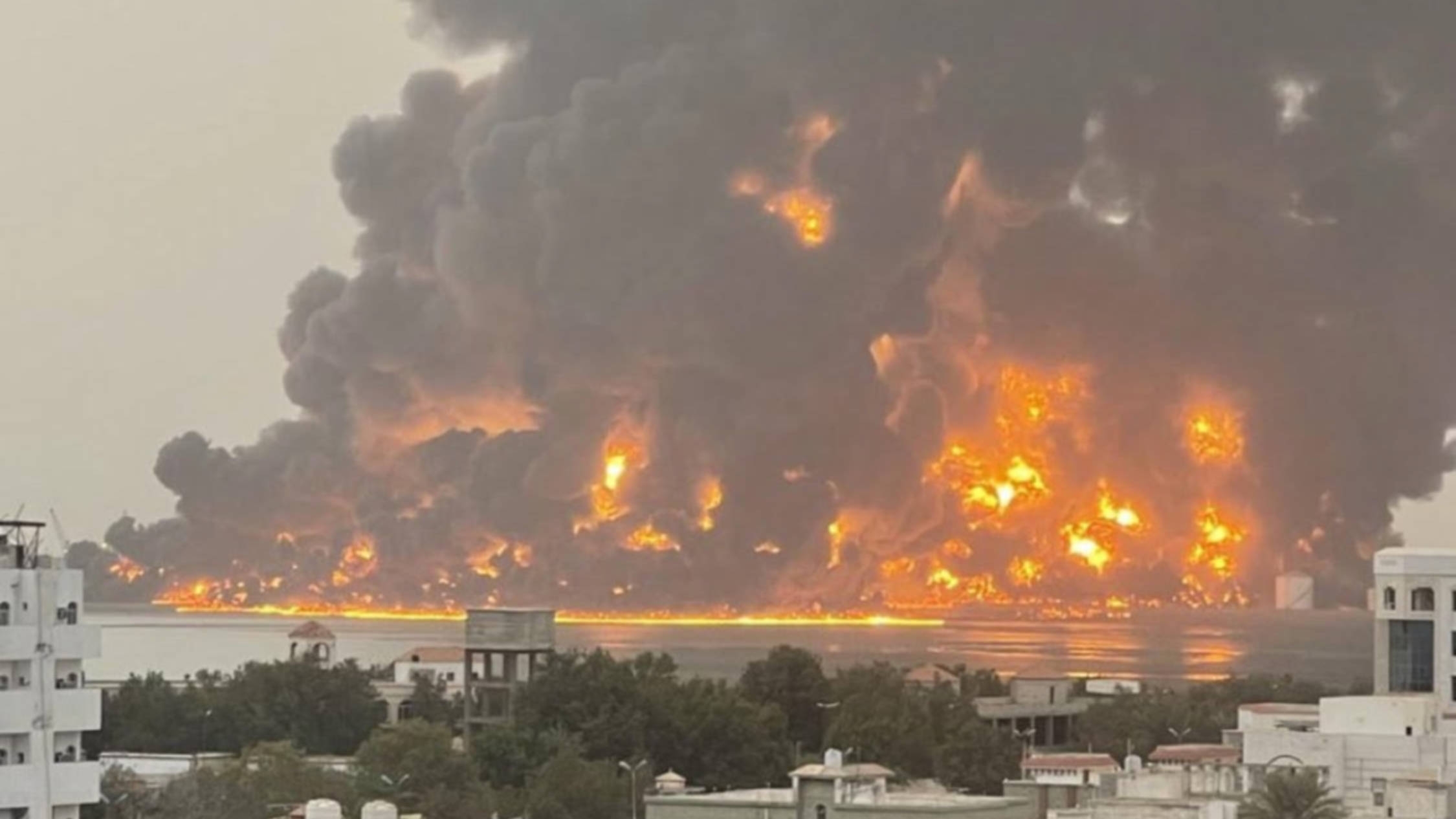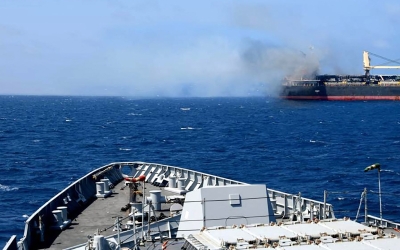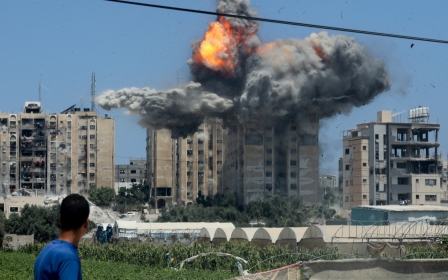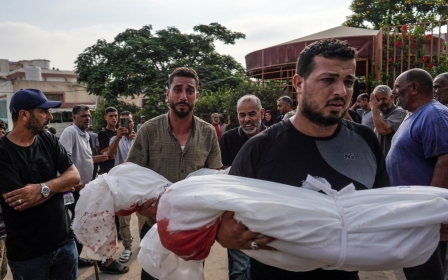Israeli jets bomb Yemen's Hodeidah port a day after drone attack on Tel Aviv

Israeli jets struck Yemen's port city of Hodeidah on Saturday, killing at least three people and wounding 87, a day after Israeli officials vowed revenge for a drone attack on Tel Aviv.
Footage shared on social media in the aftermath of the strikes showed fierce fires raging in Hodeidah port, some 200km from the capital Sanaa, with thick plumes of black smoke billowing into the sky.
The Al Masirah television channel, run by Yemen's Houthi movement, reported that at least three people were killed and 87 were wounded after the strikes targeted a refinery and electricity infrastructure at the port.
The Israel military said it struck "military targets" in the port, in retaliation for repeated attacks by Houthi fighters since Israel launched its war on Gaza last year, and that the strike was also geared at sending a message to the Middle East.
"The fire currently burning in Hodeidah is visible across the Middle East, and its significance is clear," Yoav Gallant, Israel's defence minister, said in a statement.
New MEE newsletter: Jerusalem Dispatch
Sign up to get the latest insights and analysis on Israel-Palestine, alongside Turkey Unpacked and other MEE newsletters
'The Houthis have attacked us over 200 times. When they first harmed an Israeli citizen, we responded with a strike. We will continue to act wherever necessary," he added.
Later, Israeli Prime Minister Benjamin Netanyahu said that the port was targeted as it was used "for military purposes."
The strike, he said, "makes it clear to our enemies that there is no place that the long arm of the state of Israel will not reach".
Nasruddin Amer, a spokesman for the rebel movement, described the strikes as "a brutal act of aggression against Yemen aimed at worsening the suffering of its people and pressuring Yemen to halt its support for Gaza."
Later, a military spokesperson for the movement said "the Yemeni Armed Forces declare the occupied Jaffa [Tel Aviv] region an unsafe area and will be a primary target within the range of our weapons. and will focus on targeting the Zionist enemy’s internal front and reaching the depths."
Al Masirah TV initially said the strikes on Hodeidah were carried out by US and British forces but later withdrew the reference, according to Reuters. British and US forces have carried out repeated strikes on Hodeidah, as recently as last month.
The Houthis began firing missiles and drones at Israel, often targeting the Israeli port of Eilat, after the war on Gaza began in mid-October.
They have also launched multiple attacks on shipping in the Red Sea and Gulf of Aden, severely disrupting the flow of goods through one of the world’s key maritime trade routes.
On Friday, the Houthis, who control much of northern Yemen, claimed responsibility for the attack on Israel which killed one person and injured 10 others, saying they "carried out a specific military operation, which consisted of targeting one of the important targets in the occupied Jaffa region, what is now called Israeli Tel Aviv."
Calling their new drone 'Yafa', named after the old city, that is now part of modern-day Tel Aviv, the Houthis claimed it was capable of bypassing Israel’s interception systems.
According to Israeli officials, Israel's air defence systems identified the drone involved in Friday's attack, but it was not shot down due to "human error."
Meanwhile, Saudi Arabia sought to distance itself from the Israeli strike, with a defence ministry spokesperson saying the kingdom "has no relation or involvement in targeting Hodeidah, and the kingdom will not allow any entity to violate its airspace."
Middle East Eye delivers independent and unrivalled coverage and analysis of the Middle East, North Africa and beyond. To learn more about republishing this content and the associated fees, please fill out this form. More about MEE can be found here.





